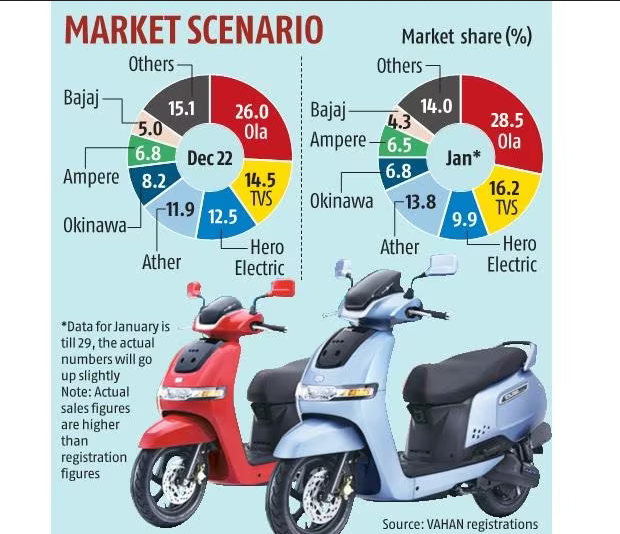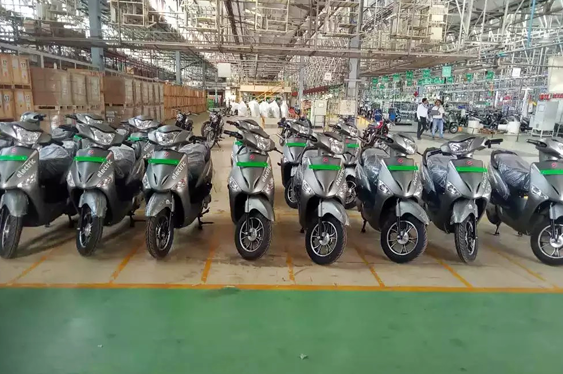India’s efforts to promote electric scooters in its two-wheeler market led to the emergence of numerous startups. However, these startups are now losing popularity as they are sourcing parts from China instead of using local suppliers.

The government is asking six companies, including Hero Electric Vehicles Pvt, a former top e-scooter manufacturer in India, to repay 5 billion rupees ($60 million) of subsidies for not following localization regulations. Additionally, the government is withholding unpaid subsidies from other companies, which is causing a shortage of much-needed funds.

The government started investigating whether companies were following the subsidy program’s localization rules after a series of e-scooter fires occurred last year. These fires involved bikes from Okinawa Autotech International Pvt and Ola Electric Mobility Pvt.
It was discovered that certain manufacturers were importing already assembled parts, primarily from China, which meant they had limited oversight over the quality of their final products. This put customers at risk of experiencing life-threatening situations.
Ola, a company in India’s e-scooter market, has not been significantly affected by the investigation and is now the leading company in the industry. To strengthen its supply chain, it has announced the establishment of an electric battery factory and has secured $140 million in funding. This funding round was led by Singapore’s Temasek Holdings Pte, and it is in preparation for Ola’s upcoming initial public offering.
However, some people are struggling to survive.
Several electric mobility companies in India, including Okinawa, Hero, Greaves Electric Mobility Pvt, Revolt Motors, Benling India Energy & Technology Pvt, and Amo Mobility Solutions Pvt, are facing difficulties in attracting investors due to the government’s delay in releasing subsidies worth 12 billion rupees.
E-scooter startups have incurred a total loss of 90 billion rupees without the benefits, as stated by the Society of Manufacturers of Electric Vehicles.

The strict localization rules in India are hindering the progress of electric two-wheeler transportation as competition for funding intensifies. This is concerning because a successful e-scooter industry is important for the country to make progress towards its zero-emissions targets, especially since it is currently falling behind other countries and electric cars are not yet popular. Only a small percentage (1.3%) of the total passenger vehicles sold in India last year were electric.
Reference- Economic Times, Business Standard, BloombergNEF, Money Control, HT Auto






